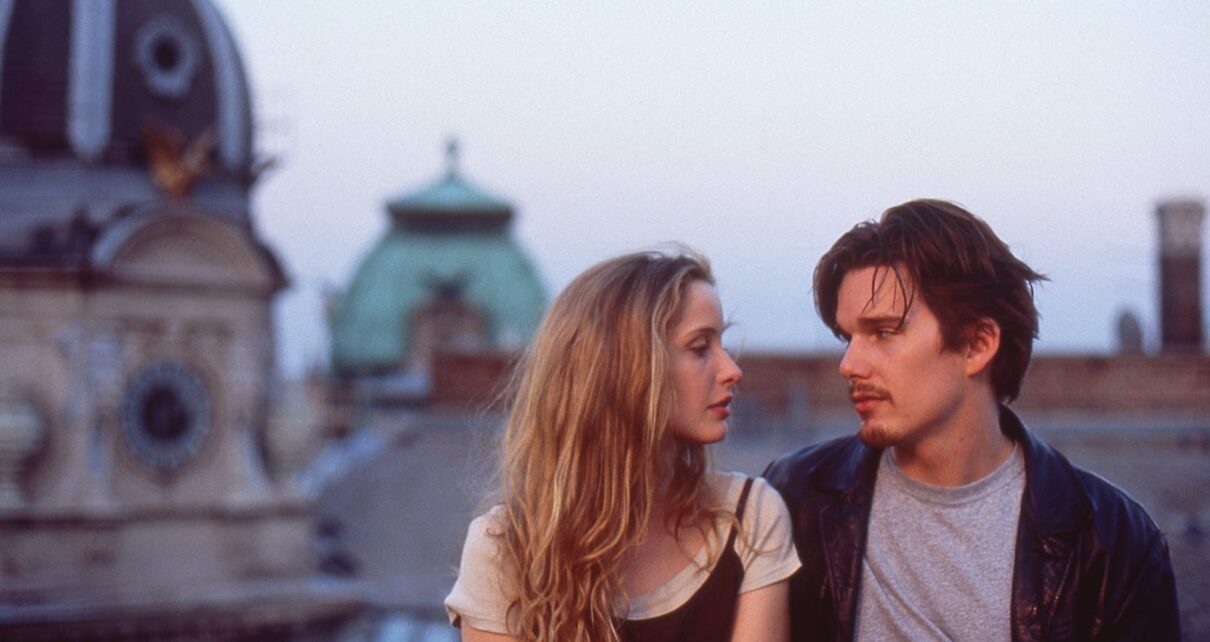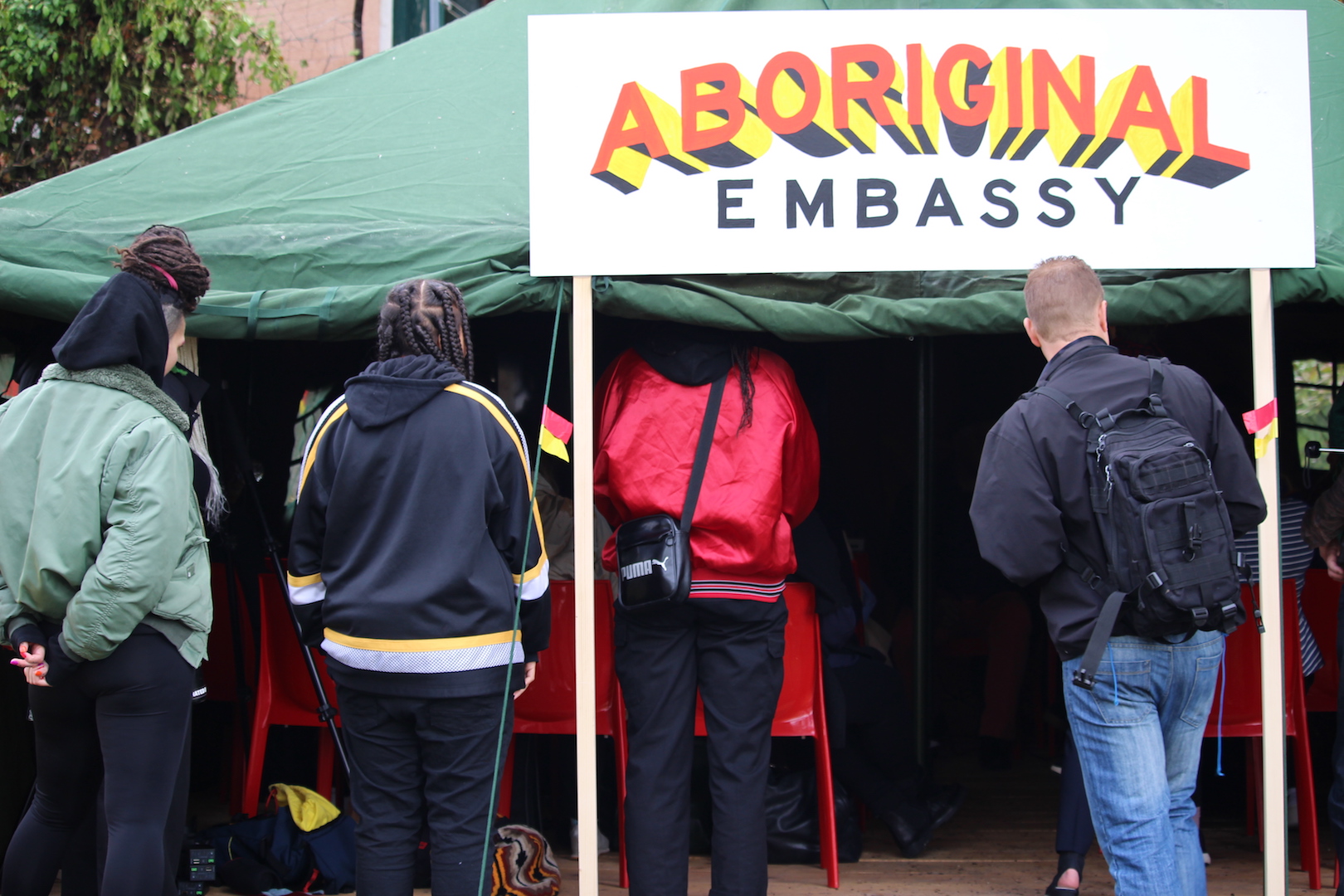Twenty five years late, I watched the “Before” trilogy (Before Sunrise, Before Sunset, Before Midnight), on consecutive nights during lockdown. Now I yearn for their “After”-story.
Roughly the same age as its leads, Céline and Jesse, when Before Sunrise was released (1995), I was not at all interested in it. A wave of hype carried it into Australian cinemas; mid-90s’ me eschewed a film I believed naffly romantic, too popular by half, and rather pretentious.
Consequently, the trilogy’s other films – Before Sunset in 2004 and 2013’s Before Midnight – slipped past unviewed. Who watches a successor before the original? The Before trilogy remained on the to-watch list, forgotten.
Then 2020’s Covid-lockdown elicited sentimental nostalgia. House-bound, the only way to travel was via memory –amidst the uncertainty, where better to return than the 90s, when we were young, restless, beyond carefree?
Ethan Hawke, the most 90s white boy heartthrob around, save only River Phoenix. As Jesse in Before Sunrise, yes, he did register as pretentious. I’m glad I watched it for the first time now; 20-something me would sneer at the archetype Gen-X persona, but this year I appreciate his vulnerabilities. What expression that goatee’d everyman face shares!
The film (and the trilogy) is a triumph of dialogue over, well, anything – even location, in these films no slight achievement. A quick synopsis: in Before Sunrise, Jess and Céline meet on a train, and spend a day and night together walking and talking in Vienna before parting. That’s pretty much it. And it’s gorgeous. They reunite nine years later in Before Sunset, and again in another nine years in Before Midnight. Each of these films is set firmly in its moment, while projecting a timeless love story. Jesse and Céline are mesmerizing.
Stars Julie Delpy and Ethan Hawke are co-credited as writers in the second two films, and their contribution to the first has also been noted. Contemporary film students perform “Before” scenes as studies in skillful dialogue. Many of these conversations were ad-libbed, or re-worked collaboratively. Some of the most memorable scenes contain no dialogue at all. For a virtually silent moment in a record store’s listening booth (ah, nostalgic anachronism!), the actors were actually listening to the lyrics of Kath Bloom’s ‘Come Here’ for the first time. The charged glances they sneak at each other, the silent build-up to not-kiss, is acme on-screen chemistry.
To move straight from this first film to Before Sunset, the next evening, was a viewer’s treat (akin to gorging on highlights from the entire 7-Up series in a week’s binge). Before Sunset takes up with the couple in Paris, filmed in real time (and often in long takes). Jesse, a visiting author who’s written a successful book based on their previous one-day history, is about to return to his family in the United States, when Céline turns up at a book reading. They spend hours together again, talking, walking.
I dare you to watch the final scene of Before Sunset and remain dry eyed as the credits roll.
I could take a fair stab at where Céline and Jesse are at, in their lives, as Before Midnight begins the next night. Now in their early 40s, they have summered with friends in the Peloponnese in Greece and are planning to return home. They have a young family. Again, they spend much of this movie talking, and walking. Their conversations have grown up with them; their lives are fuller, their foci honed from the global to the domestic.
At times, listening to them, it’s like listening to every couple’s ridiculous arguments. After three nights together, I know these people. And when this movie ends, I don’t want to let them go.
According to their nine-year format, if the Before trilogy were to stretch to a fourth, the next installment would be due in 2022. What a world they have to talk about right now! But the three films really are a trilogy, and especially with the underline that 2020 placed under our lives, COVID’s devastation, the political shifts globally, the wrecking ball of Trump’s America and 2021’s tiny, tentative political hopes, perhaps it is best to leave Jesse and Céline here. At least in this format.
Sources say there won’t be any more “Befores”. Delpy has pretty much blackballed it; Linklater has suggested we might have some time to wait, maybe another few decades, to visit the lovers in their 80s.
Hawke doesn’t deny the possibility of an ‘After’ Before – but it would be a different kind of film. Something more attuned to our strange ‘now’?
And after last year, what could be better than to look forward to how Celine and Jesse, older, creakier, emerge from lockdown in another European city?
Mr Linklater, are you listening?

